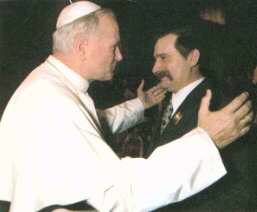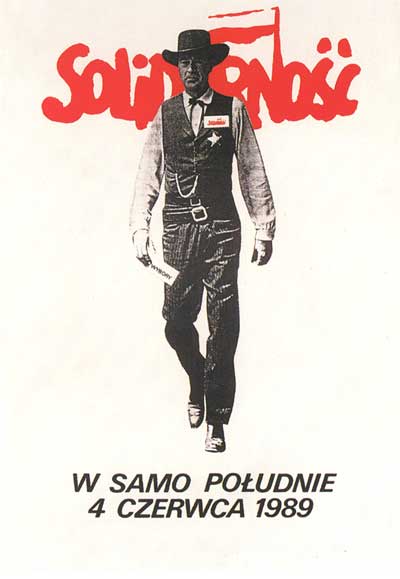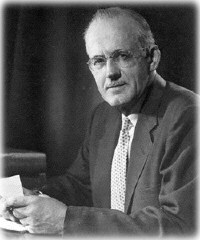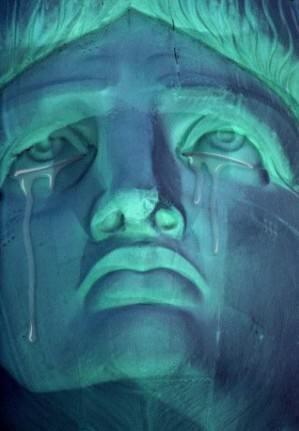
A scheduled release of America's national anthem, "The Star-Spangled Banner," in Spanish, is raising the ire of many, including those who are sympathetic to some immigrant and illegal aliens plight.
This will serve one purpose, to further those with extreme sentiments and push moderates into an unfriendly position.
What a travesty, that this nation's anthem, a symbol in song of our patriotism and love of country, is sang in a foreign language.
And yes, did we mention the sliding in of new lyrics, complete with fashionable and p.c. lines offering political commentary on immigration.
As the above linked article wonders, can one imagine the response from the French should the "La Marseillaise" be recorded in English. Gallic pride would rise up in virulent cries for vitrolic revenge.
No nation should have such a cultural cornerstone effaced in this way.
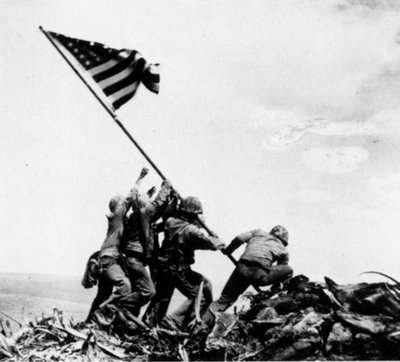
Is this what immigrants in 1840, or 1900, or 1980 hoped for? That their children would one day sing "The Star-Spangled Banner" in Gaelic, Italian, Croatian, tribal dialects, or tonal variations?
Is this what soldiers for some two hundred years have died for? Is this what brings a tear to the patriotic eye before a baseball game?
I know it is not.
As a historian, I made sure that despite immigrants, regional differences, cultural divergences, and state loyalties, Key wrote the original in ENGLISH. Indeed he did.

The Star-Spangled Banner
by Francis Scott Key
O say can you see, by the dawn's early light,
What so proudly we hail'd at the twilight's last gleaming,
Whose broad stripes and bright stars through the perilous fight
O'er the ramparts we watch'd were so gallantly streaming?
And the rocket's red glare, the bomb bursting in air,
Gave proof through the night that our flag was still there,
O say does that star-spangled banner yet wave
O'er the land of the free and the home of the brave?
On the shore dimly seen through the mists of the deep
Where the foe's haughty host in dread silence reposes,
What is that which the breeze, o'er the towering steep,
As it fitfully blows, half conceals, half discloses?
Now it catches the gleam of the morning's first beam,
In full glory reflected now shines in the stream,
'Tis the star-spangled banner - O long may it wave
O'er the land of the free and the home of the brave!
And where is that band who so vauntingly swore,
That the havoc of war and the battle's confusion
A home and a Country should leave us no more?
Their blood has wash'd out their foul footstep's pollution.
No refuge could save the hireling and slave
From the terror of flight or the gloom of the grave,
And the star-spangled banner in triumph doth wave
O'er the land of the free and the home of the brave.
O thus be it ever when freemen shall stand
Between their lov'd home and the war's desolation!
Blest with vict'ry and peace may the heav'n rescued land
Praise the power that hath made and preserv'd us a nation!
Then conquer we must, when our cause it is just,
And this be our motto - "In God is our trust,"
And the star-spangled banner in triumph shall wave
O'er the land of the free and the home of the brave.


